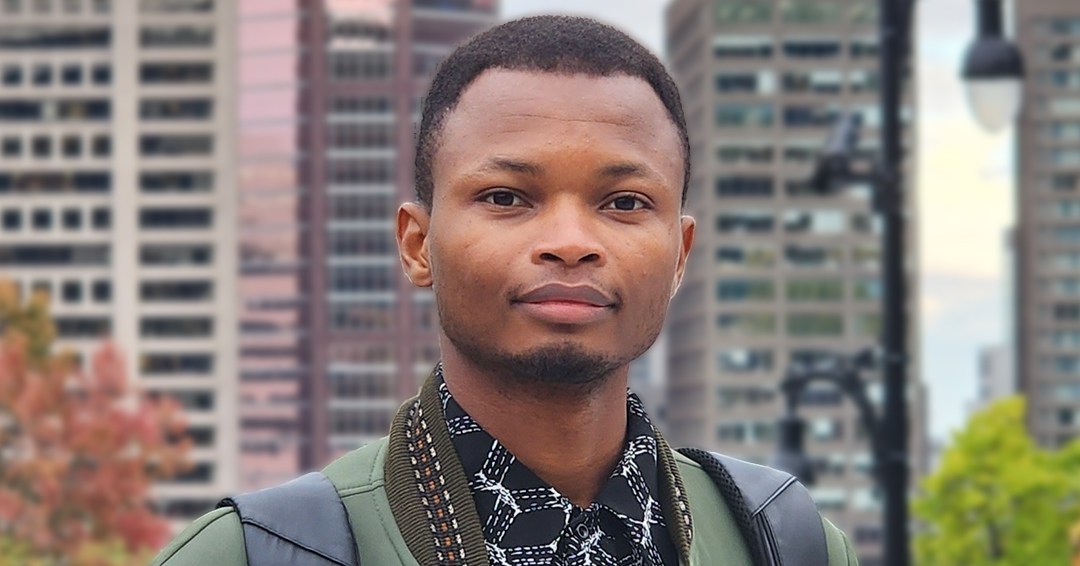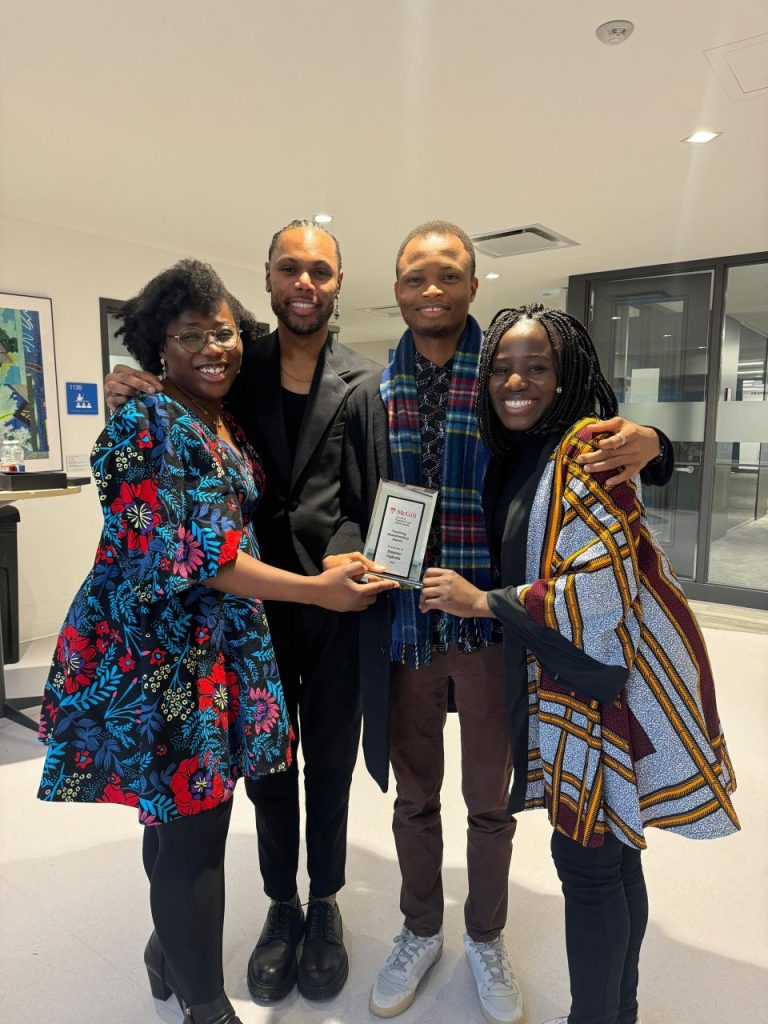
This Q&A series is part of Black History Month and Beyond, an initiative of the Black History Month (BHM) Organizing Committee co-led by Black students and faculty from the Faculty of Medicine and Health Sciences with the Equity, Diversity, and Inclusion Anti-Racism Committee (EDI-AR) of the School of Population and Global Health.
Can you tell us a bit about yourself?
I’m a third-year doctoral student in the Department of Epidemiology, Biostatistics & Occupational Health. I was born and raised in Nigeria, where I studied and practised pharmacy for a bit. I then obtained my Master of Public Health in Scotland and proceeded to my current pursuit of a PhD in pharmacoepidemiology at McGill. I love music—an eclectic buffet of genres, including afrobeats, Igbo highlife, hip-hop, R&B, blues, pop, indie and EDM, among others. I fear my ears will be my first organ to give out, but it would have been thoroughly worth it. I also fiddle with the guitar and am positively obsessed with chess. I speak English, Igbo, Yoruba, and if I may be so generous to myself, French.
Can you describe your program of study and your research project?
In pharmacoepidemiology, we explore the safety and effectiveness of approved drugs in large populations using electronic or administrative health data. My doctoral thesis specifically assesses the safety of adjuvant hormonal therapy among women with breast cancer, using electronic health data for 300,000 women in the United Kingdom. These hormonal drugs are typically taken for five to 10 years after surgery to prevent cancer recurrence, but they may increase the risk of diabetes—an important driver of worse cancer outcomes. My research aims to identify which treatments pose the least risk of this negative outcome.
What inspired you to pursue your area of research? What do you hope to achieve?
As a pharmacist, I enjoyed addressing the health needs of each patient before me. However, I became increasingly drawn to tackling the upstream causes of poor community health, leading me to pursue a master’s in public health. During my epidemiology training, I was thrilled to discover pharmacoepidemiology — a field that perfectly merges my interests in pharmacology and epidemiology. Given the rising global burden of cancer and the (fortunately) increasing longevity of this patient population, I chose to investigate treatments that would improve their survival and quality of life.
Why did you choose McGill?
Having decided to advance to a PhD in pharmacoepidemiology, I searched for the best schools for this program globally. McGill was at the top of my list, thanks to the world-renowned pharmacoepidemiology lab at the Lady Davies Research Institute, led by Samy Suissa, PhD, and my supervisor, Laurent Azoulay, PhD. Beyond that, McGill is a globally recognized institution with a thriving international student community, and I welcomed the opportunity to learn a fourth language.
Can you describe your community involvement and why you feel it is important, especially as a member of the Black community?
As a Black young man thousands of miles and an ocean away from home, I have found it vital to build a sense of community here in Montreal. This began with the only other Black students in my class — Omotayo and Joseph — who quickly became mes chers amis. My involvement in the wider Black community grew through the efforts of my awesome friends, Berson and Divine-Favour, who selflessly serve as bridges within the local Black network. Additionally, I am actively involved in the Association of Nigerian Students at McGill, where we provide mutual support. I believe that such community involvement is the bedrock of our collective survival.

How has your identity as a member of the Black community formed your research interests or community involvement?
My identity as a Black researcher has reinforced the importance of representation and community in academic spaces. Navigating this journey far from home, I have found strength in connecting with fellow Black students and researchers, knowing that our shared experiences create a support system that makes all the difference. This sense of community also extends to my research lab, where I aim to foster collaboration and mentorship, ensuring that others feel seen and supported in their pursuits.
What advice would you give your younger self, knowing what you know today?
I would tell younger Steve to embrace uncertainty with confidence. The path ahead will rarely be linear or lucid, but everything will turn out fine. Trust your instincts, stay curious, and don’t be afraid to carve out your own path. Most importantly, surround yourself with people who challenge and uplift you—your community will be your greatest asset, brave little boy!
